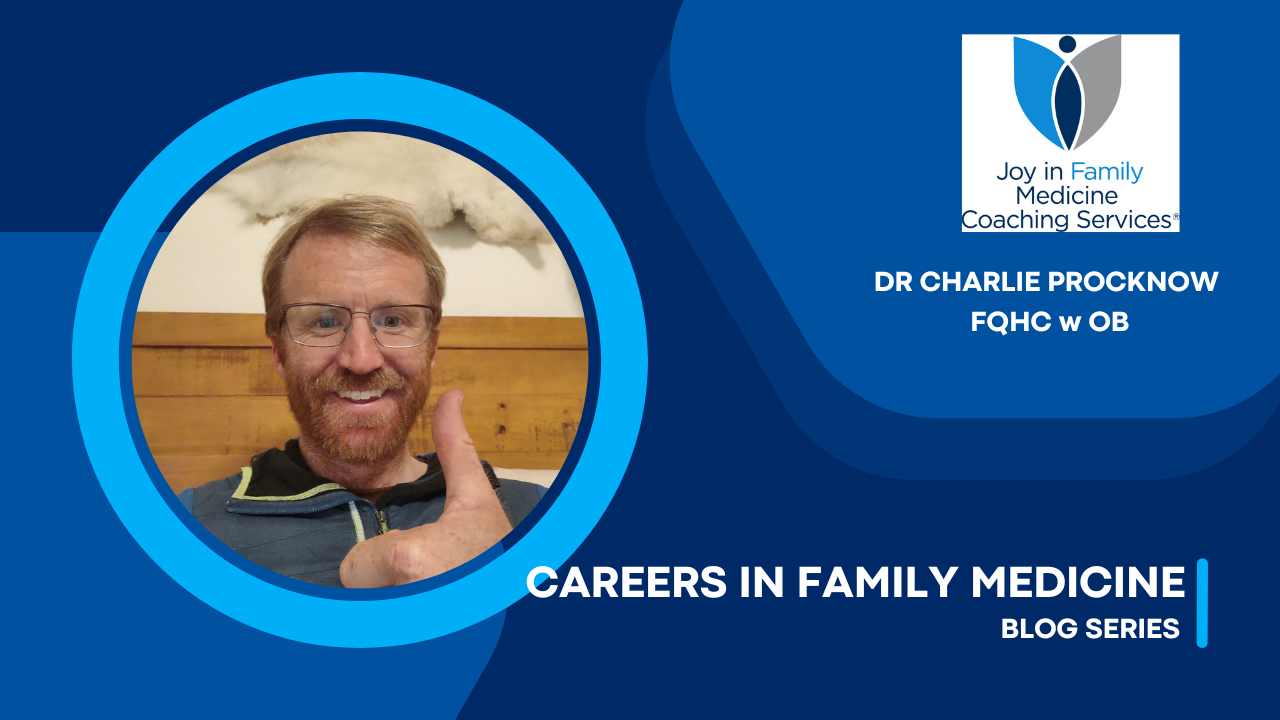The Joy in Family Medicine Blog
Insights and practical ways forward:
Rooted in years of reflection, medicine, education, and coaching
Curated to support your well-being, growth, and fulfillment as a physician.
We’re continuing our Careers in Family Medicine series, where each week a family physician shares their career journey and...
We’re continuing our Careers in Family Medicine series—spotlighting physicians whose paths reflect just how many ways ther...
We’re continuing our Careers in Family Medicine series highlighting physicians whose work reflects the breadth and meaning...
We’re continuing our Careers in Family Medicine series spotlighting physicians whose career paths show just how versatile ...
We’re continuing our Careers in Family Medicine blog series spotlighting physicians whose career paths offer a glimpse int...
We’re continuing our Careers in Family Medicine series, exploring the many ways family physicians build meaningful, sus...
We’re continuing our Careers in Family Medicine series, highlighting the many ways family physicians shape meaningful, sus...
We’re continuing our Careers in Family Medicine series, highlighting the diverse and sometimes surprising paths family phy...
We’re continuing our Careers in Family Medicine series, where each week I highlight a family physician and their unique caree...
We’re continuing our Careers in Family Medicine blog series! Each week over the next few months, I’ll highlight a family phy...
I’m excited to kick off my new series: Careers in Family Medicine. 🎉
Each week for the next few months, I’ll be highlighting a...
When we think about Careers in Family Medicine, our minds often go first to the physician role itself, the many ways a family...














